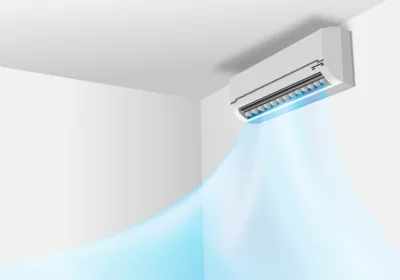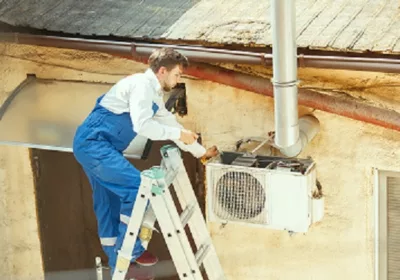
Learn How To Control Heat And Humidity In Your Home
Summer days come with warm and humid weather. These cause discomfort and other various issues in a home including hiking the cost of indoor energy efficiency. It is important to understand the effect of humidity and heat on your air quality and indoor comfort. Understanding these allows making smart steps to a more energy-efficient and comfortable home.
Humidity affects indoor air quality and comfort. Too much humidity causes significant discomfort and prompt condensation. This causes severe damage to finishes and encourages mold growth. An air conditioner eliminates humidity from the air when cooling especially when the outside humidity is high. Ensuring a more comfortable environment requires keeping the AC low to reduce humidity. Nights usually have lower humidity so you can turn the AC off to lower energy use.
Comfort
A home should feel comfortable regardless of the outside weather. The presence of heat and humidity inside your home makes it feel oppressive and stagnant. This makes concentration on tasks and getting quality sleep hard. The ideal air conditioner is selected to meet the needs of your home comfort. This is backed by a thermostat to control heat and humidity level for an optimal indoor environment.
The air conditioner requires an appropriate AC repair service to ensure that it works efficiently throughout the year. Scheduled repair includes repairing and replacing all appropriate parts including the air filters. A unit in good condition allows the thermostat to make accurate reflection on your home comfort level. An AC in good condition encourages a refreshing and energized feel indoors to prevent your home from irritability.
Health
The presence of high humidity and heat has adverse effects on the whole household. These make a perfect breeding ground for mildew, mold, and other pests including rodents and insects. Such creepy creatures seek damp and hot places for comfort and shelter. This makes a home with humid and warm spaces is very attractive for pests that eventually cause trouble after settling in.
Pest infestations and mold growth cause severe damage to home finishes and belongings. Additionally, these enhance chances of various health concerns including asthma and allergies. Pests are naturally destructive and might compromise home insulation, heating, and cooling. This causes further trouble leading to discomfort and poor indoor air quality.
Home energy
The level of humidity significantly affects the heat the air holds in your space. Air that is more humid holds more heat making your interior seem warmer including during low temperature. When feeling too hot, the obvious thing to do is lowering the thermostat. This costs more energy to eliminate the heat and humidity from the indoor air to reach your ideal comfort. You are likely to end up spending more money on energy bills monthly.
Too much efficient lowers air conditioner efficiency making it work harder to eliminate humidity and heat from the air by a lower thermostat setting. Ensuring an efficiently working air conditioner is necessary to lower energy costs especially during summer. Calling a professional technician is highly recommended to ensure your unit works efficiently throughout the year.
Determining ideal indoor humidity
Low indoor humidity
Presence of low humidity encourages causes various health conditions including:
- Lips cracks
- Dry eyes
- Skin complaints
- Irritated respiratory tracts
Low humidity is not good for your home itself as well. It encourages the wood to crack and tear since wood shrinks when dehydrated. This affects wooden furniture, wooden floor, and window frames.
Extreme humidity
A home with very high humidity is prone to fungal problems. Additionally, it also makes wooden floors, furniture, and window frames to absorb moisture and expand. You are also likely to feel very warm living in a home with very high humidity since the heat can’t escape into the air. The ideal humidity indoors offers comfort and relaxation. Additionally, it should also encourage energy efficiency by consuming lower energy to warm moist air.
Other effects of excess humidity include:
- Mold growth
- Musty smells in your home
- Condensation or foggy windows
- Shrinking of door and window frames
- Warping of wooden floors or furniture
- Peeling of wallpaper and bubbling paint
- Malfunctioning of electronic equipment
- Presence of water stains on walls and ceilings
How humidity affects home comfort
Humidity doesn’t affect the temperature inside a home but encourages discomfort. The ideal relative humidity is between 30 to 50 percent. If it goes higher, the home feels warmer regardless of the thermostat reading. It is hard for sweat to evaporate in a humid environment. sweating naturally cools the body. If it can’t escape, the heat remains in the body to make you feel uncomfortable. So, controlling the humidity level in your home is key to maintain a pleasant environment.
Bottom line
Taking steps to control heat and humidity in a home comes with various benefits. It comes with a healthier and comfortable home with lower energy bills at the end of the month. An efficient working AC requires appropriate repairs and maintenance.















